GLOBAL STEM CELLS GROUP ANNOUNCES THE LAUNCH OF ITS NEW DIVISION “VITA NOVAS”
A Step towards the Actualization of Regenerative Medicine
The Global Stem Cells Group takes another luminary step by launching its new company VITA NOVAS in the field of Regenerative medicine. Vita Novas is a mobile IV infusion company that provides in-home treatments to patients in need of immune modulation to help fight infections, viruses, and diseases. Under the banner of GSCG, Vita Novas is ready to launch in 26 countries in the first year of its inception.
Having the cushion of an already established worldwide network and 10 years of experience of GSCG, VITA NOVAS has already gained ground with the inherited reputation of quality, innovation, and professionalism. The VITA NOVAS’ program delivers micronutrients and stimulating biological products like Exosomes and Mesenchymal Stem Cells intravenously, guaranteeing an effective way for the ingredients to become immediately available to the cells. This greatly decreases the time it takes for the medication or supplements to take effect. Patient-centred carved out packages The Shield, the Fighter, and the Lightening are delivered on-demand to homes, offices, or hotels administered by certified healthcare professionals.
Believing on the percept of Prevent-Protect-Thrive, VITA NOVAS aspires to set standards in the industry, and committed to ensure in-home, and personalized patient service; keeping them away from hospitals and emergencies. VITA NOVAS offers infusion packages, mixed with essential fluids, electrolytes, vitamins, and antioxidants as a powerful cocktail to stimulate the immune system and help bolster it to assist in fighting infections and diseases. In-line with the evolved life pattern of social distancing, the process of treatment at VITA NOVAS culminates as:
Select your Service Area
Schedule a video consultation with our local doctors to discuss your possible treatment plan
Receive the treatment at home
“We have combined elements of Tele-health with cellular therapy, IV wellness infusions, and a direct-to-consumer model intending to capitalize on the burgeoning market for medical services at the patient’s’ place of residence, due to convenience and social distancing practices,” explains Benito Novas , CEO of VITA NOVAS.
The secret behind the VITA NOVAS program is the provision of assistance and prime incentives to medical professionals. Once a physician joins the network, the company provides training and support that they will need in order to set-up run, and market their practices. They enjoy geography and specialization exclusively as well as a strong network of patients referrals, increased revenues, and conduct consultations from home.
Global Stem Cells Group, with golden track record and experience of a decade, is the parent company of six wholly owned operating companies dedicated entirely to stem cell research, training, products, and solutions. Founded in 2010 by Benito Novas, the company combines dedicated researchers, physicians, patient educators, and solution providers with the shared goal of meeting the growing worldwide need for leading-edge Regenerative Medicine treatments. Global Stem Cells Groups corporate mission is to make the promise of Regenerative medicine a reality for patients around the world. With each of GSCGs six operating companies focused on a separate research-based mission, the result is a global network of state-of-the-art regenerative technology, while adhering to the highest medical standards.
VITA NOVAS can help, to find your service area, please visit: www.vitanovas.net
To know more about the company , visit www.stemcellsgroup.com
- Published in Press Releases
ISSCA to Conduct First Hands On Regenerative Medicine Training after Global Pandemic
he COVID19 pandemic has brought about a ‘new normal’ of social-distancing, closed businesses and self-isolation. After several months of inactivity brought about by this virus and the period of self-isolation, the International Society for Stem Cell Application is ready to begin the process of resuming our schedule of training courses,
Florida (PRUnderground) May 19th, 2020
Now, more than ever, interest in the immune system and its health has breached our collective consciousness, both phycicians and scientist are turning to regenerative medicine as a way to strengthen it. Recent breakthroughs in the field have led to a newly devised program– one with a proprietary protocol for strengthening the immune system, furthering a person’s ability to fight and prevent disease.
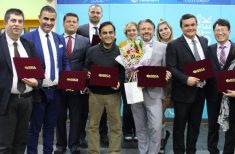
This inaugural training will take place in Washington over the course of two days, during which we will be training a group of five doctors in the latest regenerative medicine techniques. We will go over our traditional program providing physicians with all of the tools they will need to begin incorporating regenerative medicine into their own practice
The International Society for Stem Cell Application is an independent, non-profit organization whose objective is to become the gold standard of regenerative medicine. It accomplishes this through hosting conferences and specialized certification courses, publishing and sharing clinical research, and setting protocols in the field of regenerative medicine. Through this partnership, we are seeking to spread knowledge on the current applications of cellular therapies by building a platform for doctors to discuss and debate the newest advancements in the field. These conferences have been held in dozens of countries, and work to create a global network of regenerative medicine researchers and practitioners.
If you’d like to know more information about our program, or the courses that we offer around the world, please check out by visiting our website at: www.issca.us
About International Society for Stem Cells Applications
The International Society for Stem Cells Applications (ISSCA) is a multidisciplinary community of scientists and physicians, all of whom aspire to treat diseases and lessen human suffering through advances in science, technology, and the practice of regenerative medicine. Incorporated under the Republic of Korea as a non-profit entity, the ISSCA is focused on promoting excellence and standards in the field of regenerative medicine.
ISSCA bridges the gaps between scientists and practitioners in Regenerative Medicine. Their code of ethics emphasizes principles of morals and ethical conducts.
At ISSCA, their vision is to take a leadership position in promoting excellence and setting standards in the regenerative medicine fields of publication, research, education, training, and certification. ISSCA serves its members through advancements made to the specialty of regenerative medicine. They aim to encourage more physicians to practice regenerative
medicine and make it available to benefit patients both nationally and globally.
For more information, please visit https://www.issca.us/ or send an email to info@stemcellsgroup.com
- Published in Press Releases
GLOBAL STEM CELLS GROUP will host ISSCA Regenerative Medicine Training
After several months of silence due to the mandatory shutdown in place, the training division of Global Stem Cells Group –known as ISSCA Training– has officially announced the reopening of its regularly scheduled training dates Around the world
Miami, FL (PRUnderground) May 20th, 2020
“The future’s looking bright for our Regenerative MedicineTraining program, we’ve taken our course and updated it, reinforcing it with new information and quality protocols that’ll help doctors and their patients manage this ‘new normal’ as well as they can, and we’re very excited to be able to be bringing this new information to physicians around the world– but we’ve decided to start small for now, with the reinstatement of our headquarters’ operations,” — Benito Novas, CEO
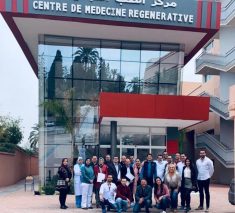
Because of the growing interest in the industry , ISSCA Regenerative MedicineTraining has updated its program with new protocols focused on the optimization of the body at the cellular level. Notably, their upcoming June course will also include live practice patients in the treatments of autologous cell therapy, which includes PRP, adipose-derived stem cells, bone-marrow derived stem cells, exosomes, Umbilical Cord Blood Cells, and other novel techniques.
Stem Cell Training is a company that seeks to instruct medical professionals around the world on regenerative medicine techniques. They do this by sharing breakthrough scientific research on stem cell therapy and treatment, as well as developing and offering courses, seminars, and workshops based on this research.
About the Global Stem Cells Group:
Global Stem Cells Group is the parent company of six wholly owned operating companies dedicated entirely to stem cell research, training, products and solutions. Founded in 2010, the company combines dedicated researchers, physicians ,patient educators and solution providers with the shared goal of meeting the growing worldwide need for leading edge Regenerative Medicine treatments.
With a singular focus on this exciting new area of medical research, Global Stem Cells Group and its subsidiaries are uniquely positioned to become global leaders in cellular medicine.
Global Stem Cells Groups corporate mission is to make the promise of Regenerative medicine a reality for patients around the world. With each of GSCGs six operating companies focused on a separate research-based mission, the result is a global network of state-of-the-art regenerative technology
- Published in Press Releases
Global Stem Cells Group Announces Launch of Vita Novas In-Home IV Infusion Service
Its no secret that a quality IV infusion can boost health and energy. Vita Novas makes this more simple than ever performing IV services than revitalize the body and help it regenerate, right at home.
Miami , Florida (PRUnderground) May 20th, 2020
The interest in boosting the immune system in a safe and effective way is a topic on more minds than ever. In exciting news, Global Stems Group has announced the launch of a new company, Vita Novas who make this both simple and dependable. Vita Novas offers an IV infusion packages are a mix of stem cells, essential fluids, electrolytes, vitamins and antioxidants as a preventive solution for having an optimal immune system. This IV infusion is delivered at home, in an office, or at a hotel, by certified healthcare professionals. With the global pandemic shutting doors of physicians for elective and health-enhancing non-vital procedures going to get IV treatments in most communities is difficult, if not impossible. Vita Novas is opening the doors for these life-enhancing treatments to be accesses in an easy and convenient way.
“The demand for preventive health services using IV infusion is greater than ever,” commented Benito Novas, CEO of the company. “What we are doing, by offering these at home and offices, is not just making things more convenient but also following social distancing requirements. Its truly making the right thing available at the right time and place.”
Vita Novas provides a teleconsultation with a Doctor to determine what meets a patient’s needs best. Three different vitamin and nutrient vitamin infusion packages are available.
The Lighting Package consists of two sessions of IV administration of vitamins (Vitamin C, B-Complex vitamins, and trace minerals), with a patient follow up recommending dietary changes and oral supplements to maintain good health.
The Shield Package is three sessions of IV administered (high dose Vitamin C, Methylcobalamin, Zinc sulphate, Glutathione and five billion flow exosomes). This has been shown have a powerful effect in regulating regenerative processes in the body and increase cell to cell communication. This has been used to treat COVID-19 patients with exciting results, something clearly at the front of people’s minds of all ages and lifestyles.
The Fighter Packages is the platinum offer from Vita Novas. This combines IV administration of high dose micronutrients (amino acids, glutathione), vitamins (B-Complex, methylcobalamin, Folic Acid, Vitamin C), and trace minerals (zinc, copper, magnesium) along with 30 million live stem cells in 5 sessions. This can modulate immunity and assist in the regeneration process of damaged or infected tissue in a very dramatic way.
Vita Novas is currently positioned to be able to launch the program in ten different countries with the number rising to over 25 within six months. The near and far future are bright for the company and its potentially life-changing services.
About the Global Stem Cells Group:
Global Stem Cells Group is the parent company of six wholly owned operating companies dedicated entirely to stem cell research, training, products and solutions. Founded in 2010, the company combines dedicated researchers, physicians ,patient educators and solution providers with the shared goal of meeting the growing worldwide need for leading edge Regenerative Medicine treatments.
With a singular focus on this exciting new area of medical research, Global Stem Cells Group and its subsidiaries are uniquely positioned to become global leaders in cellular medicine.
Global Stem Cells Groups corporate mission is to make the promise of Regenerative medicine a reality for patients around the world. With each of GSCGs six operating companies focused on a separate research-based mission, the result is a global network of state-of-the-art regenerative technology
- Published in Press Releases
Cellgenic Set to Open New Stem Cells Center in Belgium through Partnership with Churchill Aesthetic Center
The subsidiary of the Global Stem Cells Group seeks to meet the growing demand for patients seeking stem cells treatments across the globe.
MIAMI LAKES, Florida— Cellgenic, a subsidiary of the Global Stem Cells Group (GSCG), has announced that it has signed an agreement that will bring regenerative medical treatments to more patients across Europe with the opening of a new stem cells treatment center in Belgium.
The agreement, signed between the GSCG and Dr. Samy Joheir, owner of Churchill Aesthetic Center (https://www.churchill-aesthetic-center.be/), expands the GSCG’s mission of expanding access to regenerative medicine globally. The agreement opens the center’s doors to patients seeking stem cells treatment options and to physicians across Europe and the Middle East seeking educational opportunities regarding how to incorporate regenerative medicine into their practices. The center is located at 141 Winston Churchill Avenue, B-1180 in Brussels.
The Brussels center will also serve as the GSCG’s head offices and will help the group better serve patients and doctors across Europe and the Middle East.
To new center will officially open on September 30, 2019. In conjunction with the center’s opening, the GSCG and Dr. Joheir will welcome three patients from the Middle East seeking treatments offered by the center. These patients were previously treated in the US prior to the institution of stricter FDA stem cells regulations. The Belgium center will provide these patients with treatment options closer to home, alleviating emotional, financial, and physical stressors in receiving treatment, similar to the group’s current facilities in Cancun that provide critical stem cells treatment to patients traveling from the US.
With the opening of the center, the GSCG also aims to provide more accessible educational facilities and options for physicians in the region looking to receive training in regenerative medicine. The training is in alignment with the services currently offered at the GSCG’s other facilities, such as those located in Cancun for physicians across the Americas.
Over the past few years, the GSCG has sought to achieve its mission in helping to alleviate human suffering by opening stem cells centers across the globe to meet growing patient demands. All of the group’s centers are all currently located outside of the US due to current FDA regulations restricting regenerative medicine products and protocols.
“The Global Stem Cells Group is pleased to be able to reach more patients seeking relief through regenerative medicine with the opening of our Belgian center,” said Benito Novas, CEO of the Global Stem Cells Group. “This expansion will help alleviate travel and financial barriers some European and Middle Eastern patients face in receiving the care they need, now providing them access to a facility closer to home. We are committed to opening up additional treatment centers for both physicians and patients across the globe who may be limited by their local regulations in accessing critical stem cells therapies. Through our facilities, patients looking for relief from regenerative diseases will receive top-notch care in state-of-the-art facilities.”
To learn more about the Global Stem Cells Group and its latest efforts, visit http://www.stemcellsgroup.com/.
- Published in Press Releases
Global Stem Cells Group Set to Conduct Clinical Trials in Miami
MIAMI LAKES, Florida—The Global Stem Cells Group (GSCG), a multi-disciplinary community of scientists and physicians collaborating to treat diseases and lessen human suffering through science, technology, and regenerative medicine, announced its participation in a new clinical trial in Miami. The trial is sponsored by InGeneron, Inc. and will provide researchers the opportunity to compare two treatment options in patients with partial-thickness rotator cuff tears (PTRCTs). Patient groups will be injected either with a single injection of adipose-derived regenerative cells (ADRCs) or a single corticosteroid injection to examine the efficacy of both treatment protocols.
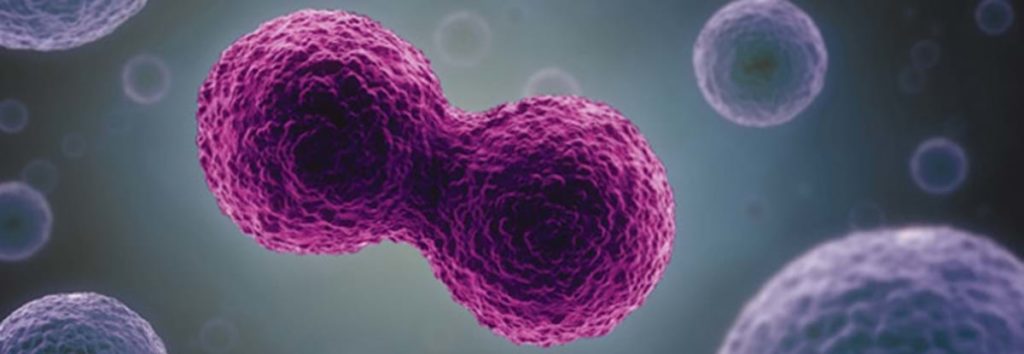
The study is a prospective, double-blinded, randomized, active-controlled, multi-site, pivotal safety and superior effectiveness study in patients with symptomatic partial-thickness rotator cuff tears. Researchers will compare a single ADRC injection generated with the Transpose® RT system into the supraspinatus tendon and surrounding area to standard-of-care (SOC) corticosteroid injection into the subacromial bursa.
Up to 20 U.S. centers will be initiated to enroll in the study. Two hundred and forty six subjects will be assigned to two randomization arms: an adipose-derived regenerative cell (ADRC) injection arm (ADRC treatment arm) and the SOC corticosteroid injection arm (active control arm). All subjects will be randomly assigned to the ADRC treatment or active control arms in a 2:1 ratio.
The GSCG clinical trial is registered with the US Food and Drug Administration (FDA) and will adhere to all FDA safety protocols. The GSCG will help recruit patients for the study. The goal of the trial is to demonstrate the safety and efficacy of stem cells treatments in helping to treat patients suffering from degenerative diseases and injuries such as PTRCTs.
“The Global Stem Cells Group is committed to helping people across the globe find relief from debilitating diseases and is pleased to serve as a leader in cutting-edge research in the stem cells field,” said Benito Novas, CEO of the Global Stem Cells Group. “This clinical trial will hopefully help us achieve these goals by demonstrating the safety and efficacy of regenerative medicine treatments to physicians, patients, and regulatory bodies so that more patients are able to have access to these treatment protocols and find relief.”
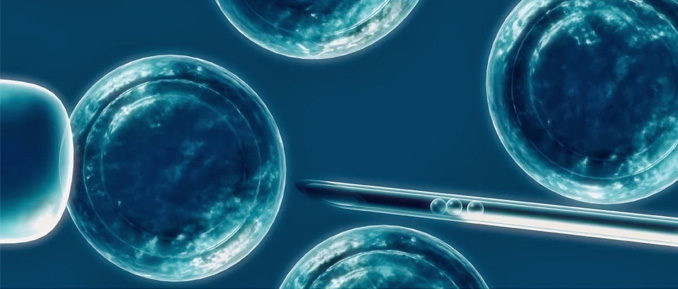
To learn more about the clinical trial, visit https://clinicaltrials.gov/ct2/show/NCT03752827. To learn more about the Global Stem Cells Group and its latest efforts, visit http://www.stemcellsgroup.com/.
- Published in Press Releases
The FDA Vs Stem Cell Treatments In The US
The FDA Vs Stem Cell Treatments In The US
Stem cell therapy has become a popular type of treatment for a number of conditions, including to assist in the regeneration of injured tissue or diseases cells in the human body. This therapy is classified as regenerative medicine. Several advancements have already been made in this medical field, and many had experienced positive results when they underwent stem cell therapy to assist in the treatment of degenerative conditions.
While stem cell therapy has been proven to provide an effective protocol in the recovery of stroke, neurological issues, and even to assist in repairing the damage that was dealt by a heart attack, recent reports have caused many to view these treatments in a negative perspective. This is due to the warnings that were recently issued by the FDA. Even though some have experienced side-effects due to the use of stem cell therapy, it is important to note that there are facilities within the US that can provide professional services that help to minimize the risk of these adverse events.
The FDA On Stem Cell Therapy In The United States
The Food and Drug Administration of the United States is involved in the analyzing and approval of medications and medical procedures that may be offered to patients in the country. To date, the FDA has shown some interest in stem cell therapy, providing approval for several clinical trials that looked at how effective this treatment is in providing a regenerating effect on the impact that certain conditions has in the human body. Only one particular treatment that involves stem cell therapy has been officially approved by the Food and Drug Administration, however.
Within the last few months, we have seen several concerning publications made by the FDA regarding stem cell therapies, reducing the hope that some patients might have gained.
On the 25th of June, 2019, the FDA published a statement that described a permanent injunction that will occur with the many stem cell clinics in the country. The FDA has stated that the action taken from their side is to assist in providing a layer of protection for patients, due to the risks involved with undergoing treatments that utilize products that have not gone through any type of approval process.
The specific company that was targeted in this statement and by the actions that were taken by the FDA is known as US Stem Cell Clinic LLC. The court ruled in favor of the FDA and US government earlier in June, finding the defendants, being US Stem Cell Clinic LLC, guilty of the claims that were made against them.
An earlier publication also confirmed that the Federal court has decided to rule the misbranding of the stem cell products released by the US Stem Cell Clinics company as a violation of laws that have been implemented to protect the people of the country.
News publications have also announced that the regulations and guidelines that have now been set out by the FDA might cause a significant decline in the availability of stem cell treatments to patients in the United States. The companies that have been targeted through these particular actions that the FDA has taken are primarily those that have been marketing products that have not gone through approval phases – and these products have been found to put the patient’s health at risk.
The Role Of Stem Cell Therapy In Disease
While some companies have been found guilty of using unapproved and even misleading products on patients, promoted as stem cell therapy, it is important to consider the reality of the situation as well. Stem cell therapy often referred to simply as Cell therapy, has been proven as a successful regime in the treatment of several conditions. Many of the conditions that have shown improvement with the use of this therapy were previously considered difficult, or sometimes even impossible, to effectively treat.
By 2012, the Worldwide Network for Blood and Marrow Transplantation, also known as the WBMT, announced that a total of one million stem cell therapy procedures had been done throughout the world. This was a significant milestone, and these procedures have helped to save a countless number of lives. Just in this report, the WBMT refers back to a case of Marta, a girl from Madrid, who had received stem cell therapy at a young age. This treatment was provided to Marta after she was diagnosed with Leukemia. In 2002, Marta was able to overcome Leukemia, thanks to the cell therapy that was provided to her.
While lymphoma and leukemia are the conditions where patients most frequently seek a clinic that can perform stem cell therapy on them, there are many other conditions that are treated with this procedure today. The perfection of the therapy has led to a treatment that can assist in reducing the effects of over 70 diseases that may otherwise have a significant impact on the human body.
GSCG Expands To Cancun, Meets The Demands Of US Patients
The Global Stem Cells Group had recently announced the opening of a new office that they have decided to establish in Cancun, Mexico. The decision was driven by the increasing demand for cell therapy procedures by patients in the United States and by the fact that there is currently a lack of facilities that are able to provide these individuals with the professional and quality services needed. Doctors specializing in regenerative medicine are also having a hard time fulfilling the needs of patients who wish to consider cell therapy as a potential treatment option.
This is not the only local office that GSCG now operates in Cancun, as the company now has two facilities within this particular location. These offices include a stem cells laboratory, as well as a general medical facility.
Over the years, GSCG has become an established name in the stem cell field, providing thousands of doctors the opportunity to offer cell therapy as a treatment option for patients with degenerative diseases. The use of this therapy may assist in the regeneration of damaged and diseased tissues in the patient’s body.
Even though a previous office had established a presence for GSCG in Cancun, it should be noted that the company announced that the opening of the new office means they have now officially created a permanent presence for the brand in the area.
The GSCG’s new facility in Cancun is equipped with the latest advancements that have been made in the field and provide quality services that ensure patients have a trusted medical facility where their patients can undergo cell therapy as part of a regenerative medicine treatment plan.
At the moment, doctors who are in the field of regenerative medicine within the United States can turn to this facility to offer their patients an additional treatment option, apart from the standard pharmaceutical protocols that have been established. The stem cell laboratory can assist in the analyzing of patient data and also in the process of finding a matching donor for the person who is in need of stem cell treatment.
GSCG’s facility is able to assist with the culturing of expanded autonomous cells, as well as other types of cells that may be utilized in the process of stem cell therapy. A detailed approach is taken, considering the age of the donor, as this would also provide an overview of the autonomous stem cell age. The patient being treated is also taken into close consideration, as there are different methods of introducing these stem cells to the body for enhanced efficacy.
A more aggressive method is often needed in those patients with conditions such as autism, Alzheimer’s disease, and kidney-related conditions. Other conditions can also be treated, such as pulmonary diseases, Parkinson’s disease. In cases of a stroke, the vascular arteries, along with the carotid artery, is targeted with the therapy for a more effective approach to assisting with the regeneration of damaged structures in the patient’s brain. This ultimately leads to a significant improvement in the delivery of stem cells to the patient’s body, which could enhance the overall efficacy expressed by the treatment.
When these procedures are provided to the patient through the GSCG, an appropriate ICU unit is made available to ensure the patient is provided with adequate care during the operation and recovery of the procedure.
The utilization of recent technological advancements at laboratories facilitated by GSCG can also assist in providing a more economical approach to cell therapy. The utilization of allogenic stem cell procedures can be addressed using techniques that will essentially offer a reduction in the costs involved.
Planar technologies may be utilized when the demand is less than one billion cells per annum, which can significantly reduce the costs of the process and, in turn, make these treatments available to patients at a lower price.
The utilization of autologous stem cell transplantation also offers an opportunity for patients to undergo stem cell therapy when a sibling does not provide an ideal match. Cells can be cultivated from the bone marrow and treated with specific drugs in order to yield targeted results. In the case of malignant cells in the body, bone marrow can be treated with monoclonal antibodies or cytotoxic drugs to target such cells when transplanted back into the patient.
Appropriate storage solutions are also taken into consideration to assist with the cultivation process, and to reduce the risk of enzymatic treatment leads to the differentiation of cells into other types. The culture condition becomes crucial for the expansion of stem cells. A PA6 conditioned medium, along with an enclosure of semi-permeable hollow fiber membranes, is one example of how the laboratory can keep certain stem cells from differentiating, while also assuring successful cultivation and expansion.
The GSCG’s Role In The New FDA Warnings
The fact that the FDA has announced the warnings against stem cell therapy products and had even taken action against a relatively popular company in the United States have now caused a limitation in access to these treatments. With a seizure of the services provided by companies that have been affected by the FDA’s actions and the knowledge of the misleading marketing information that was used in the campaigns initiated by these companies, patients might not be sure where to turn to right now.
The same problem is faced by many doctors in the field of regenerative treatments and medicine. Doctors in these fields need to ensure a facility they utilize to allow patients to undergo a treatment like a cell therapy can offer a safe procedure.
This is where the GSCG comes into the bigger picture. With the establishment of a permanent presence in Mexico, doctors are now given access to a facility that has an established history for providing quality stem cell therapy services to patients with qualifying diseases. The company is not only trusted but have been performing stem cell therapy procedures on patients that had led to successful results.
These treatments may help to assist in repairing neurological problems caused by disorders like Parkinson’s disease, stroke, or an injury to the spinal cord. They may also offer new hope to people with diabetes, heart disease, and even those who had previously suffered damage to their cardiovascular system due to a heart attack.
Conclusion
Even though recent publications from the FDA has caused concerns to be raised regarding stem cell therapy, many patients are still interested in undergoing these treatment procedures. A significant number of studies have provided evidence on the efficacy of treating tissue damage caused by various conditions through stem cell therapy. Patients interested in undergoing stem cell treatment are now advised to turn their interest to Stem Cells Centers in Cancun and related regions, where highly specialized and experienced doctors are able to provide a professional service.
- Published in Corporate News / Blog
EXOSOMES
One major aims of regenerative medicine is to replace lost tissue with new cellular material or to improve the regeneration of damaged, malfunctioning, diseases tissue and organs using stem cell transplantation. In view of this, the discovery of Extracellular vesicles (EVs) in the twentieth century have being considered as significant factors in inflammation and immune responses, antigen presentation, immunomodulation, coagulation, tissue regeneration, organ repair, cell-cell communication, senescence, proliferation and differentiation in the body [1]. Extracellular vesicles are believed to be involved in many biological processes and they can be modified to contain specific proteins, genetic lipids, and genetic materials including messenger RNA (mRNA), microRNA (mRNA), and other small non-coding RNAs, and genomic DNA (gDNA) from their progenitor cell.
Extracellular vesicles are classified into two groups which include; exosomes and ectosomes [2]. Exosomes are characterized with cup-shaped morphology, appearred as flattened spheres with diameters ranging from 30 to 150 nm. Similarly, exosomes have a characteristic lipid bilayer which has an average thickness of ~5 nm. [3]. Thus, the lipid components of exosomes include ceramide (sometimes used to differentiate exosomes from lysosomes), cholesterol, sphingolipids, and phosphoglycerides with long and saturated fatty-acyl chains. The exosome is formed or derived from a multivesicular body (MVB) when the MVB fuses with the plasma membrane and is released into the extracellular environment.
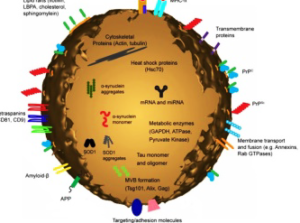
Diagrammatic representation of a medium size Exosome.
Exosomes contain many types of biomolecule, including proteins, carbohydrates, lipids and nucleic acids which vary depending on the EV’s origin, its physiological and pathological state, and even the precise cellular release site. Thus, the protein composition within can also mark the existence of disease pathologies such as inflammatory diseases; however, exosomes also contain a number of common proteins as well as those that participate in vesicle formation and trafficking. Furthernore, exosome plays a role in intercellular communication by carrying proteins and RNAs between neighboring cells or even to distant organs, they also bind to cell membranes through receptor– ligand interaction and mediate antigen presentation, cancer progression etc.
Various techniques have being developed for the isolation of exosomes which includes; ultracentrifugation-based isolation techniques, size-based techniques, precipitation techniques, immune-affinity capture-based techniques, and some novel combination techniques [4]. Exosomes primarily exist in pellets after centrifugation 100000–200000×g and the use of Ultracentrifugation and ultrafiltration can be used to obtain purified exosomes in the laboratory, but this technology is difficult to apply on a large scale [5].
Exosomes can be stored at 4°C for up to 1 week for short-term while it can be stored at -80°C for long-term by suspending it in phosphate buffered saline.
More importantly, growing evidence has also suggested that exosomes play a key role in facilitating tumorigenesis by regulating angiogenesis, immunity, and metastasis. Circulating exosomes in body fluids and blood in particular are potentially non-invasive or minimally invasive biomarkers for early diagnosis and prognosis of various types of cancer.[6] As the first step towards improving human health, exosomes have to be reliably and efficiently isolated from complex biological matrices like blood, urine, and cerebrospinal fluid since they are currently tested as next-generation biomarkers in those body fluids.
In conclusion, it is advantageous to use exosomes for cell based treatments because the use of exosomes can avoid problems associated with the transfer of cells, which may already have damaged or mutated DNA [7]. Also, exosomes are small and can easily circulate through capillaries, whereas the cells used in other cell-based therapies, such as MSCs, are too large to go through capillaries, and thus cannot get beyond first pass capillary beds, such as the lungs.
The level of MSCs in cell-based therapies may quickly diminish after transplant while, exosomes can achieve a higher “dose” than the transplanted MSCs [8]. Similarly, exosomes can also be utilized to tackle toxicity and immunogenicity problems resulting from such biomaterial treatments as nanoparticles [9].
CLINICAL APPLICATION
Ø Immuno-modulatory and anti-inflammatory properties of Exosomes could be the potential biological mechanisms for clinical treatment to promote bone regeneration. [10]
Ø Adipose-derived stem cell-derived exosomes promote fracture healing in animals by binding to polylactic acid-glycolic acid scaffolds.
Ø Exosome can be used for the treatment of chronic kidney disease, type 1 diabetes mellitus, and skin damage [11].
Ø MSCs-derived exosomes have shown therapeutical benefits in stroke and intravenous administration of MSCs-derived exosomes induced an increase of neurogenesis, neurite remodeling, and angiogenesis. [12]
Ø Administration of MSCs-derived exosomes’ has being observed in a traumatic brain injury model by showing an inflammation reduction and good outcomes.[13]
Ø The injection of MSCs-derived exosomes has also been shown to be a possible treatment for spinal cord injury (SCI), by reducing inflammation and by promoting neuro-regeneration in rats after injury [14].
Ø Exosomes can be used as a delivery system of therapeutic signals or drugs due to their low immunogenicity, ability to cross the blood-brain barrier (BBB), and long half-life in circulation.
- Published in Corporate News / Blog
Lans Holdings Secures Extension to Complete Acquisition of Global Stem Cells Group
MIAMI, FL, Sept. 11, 2019 (GLOBE NEWSWIRE) — via NEWMEDIAWIRE — Lans Holdings Inc. is pleased to announce that it has successfully secured a 180-day extension to complete the acquisition of 100% of Global Stem Cells Group Inc (GSCG).
On Friday September 6, 2019, trading in the company’s stock was suspended due to a missed communication regarding the pending delinquent annual filings. Company management has had several discussions with the SEC and has determined that an old address is the cause for the missing paperwork. The Company has agreed to enter into a settlement with the SEC, which will result in the deregistering of the Company’s shares. Company management had been working with its auditors, accounting staff and outside consultants for the past few months to bring the Company’s filings current when the Company learned of the revocation. The Company intends to now file a form 10 to reregister its common shares with the SEC and to locate a market maker to sponsor the Company in a 211 filing to reinstate trading of the Company’s shares.
“We regret the concern this put on the market, and especially the delay in communication of these events, as we had to ensure that we had accurately secured all of the necessary agreements to successfully recover from this disruption,” said Dave Christensen, CEO of Lans Holdings. “We have been working diligently on catching up all records and we are looking forward to quickly submitting a Form 10, and then closing the acquisition.”
This press release should be read in conjunction with all other filings on www.sec.gov
For more information on Global Stem Cells Group please visit: www.stemcellsgroup.com
- Published in Press Releases
MESENCHYMAL STEM CELLS
Over the last decade, cellular therapy has developed quickly at the level of in vitro and in vivo preclinical research and in clinical trials. Thus, one of the types of adult stem cells that have provided a great amount of interest in the field of regenerative medicine due to their unique biological properties is Mesenchymal stem cells (MSCs).
Mesenchymal stem cells (MSCs) are known to be multipotent stromal cells that can differentiate into a variety of cell types which include osteoblasts (bone cells), chondrocytes (cartilage cells), myocytes (muscle cells) and adipocytes (fat cells which give rise to marrow adipose tissue). Furthermore, MSCs are responsible for tissue repair, growth, wound healing and cell substitution resulting from physiological or pathological causes; they have various therapeutic applications such as in the treatment of central nervous system afflictions like spinal cord lesions (1). Similarly, they are characterized by an extensive capacity for self-renewal, proliferation, potential to differentiate into multiple lineages and their immune-modulatory role on various cells.
Mesenchymal stem cells have the ability to expand in many folds in culture while retaining their growth and multilineage potential. Also, they can be identified by the expression of many molecules including CD105 (SH2) CD73 and CD34, CD45. Thus, these properties of MSCs make these cells potentially ideal candidates for tissue technology.
In addition, it has been discovered that MSCs, when transplanted systemically, have the ability to transport to sites of physical harm or damage in animals, suggesting that MSCs have migratory capacity. This migration property of MSCs is important in regenerative medicine, where various injection routes are utilized depending on the damaged tissue or organ.
The first source of Mesenchymal stem cells was in the bone marrow and considered to be the gold standard for clinical research, although various other sources have being discovered which include: Adipose tissue, Dental pulp, Mobilised Peripheral blood, Amniotic fluid, Joint synovium, synovial fluid, Endosteum, Periosteum, Menstrual blood and birth-derived tissues.
Cohnheim (German Biologist) hypothesized in the late nineteenth century that fibroblastic cells derived from bone marrow were involved in wound healing throughout the body, while in 1970, Alexander Friedenstein described a population of plastic-adherent cells that emerged from long-term cultures of bone marrow and other blood-forming organs, and he showed to have colony forming capacity and osteogenic differentiation characteristics in vitro as well as in vivo upon re-transplantation.
Arnold Caplan (1991), coined the term “mesenchymal stem cell and stated that the cells as multipotent mesenchymal cell populations which can differentiate into several tissue types, and demonstrated roles for MSCs in the regeneration of bone, cartilage or ligaments in animal and clinical studies. However, the first clinical trials of MSCs were completed in 1995 when a group of 15 patients were injected with cultured MSCs to test the safety of the treatment.
According to International Society for Cellular Therapy, the proposed minimum criteria to define MSCs include the following:
(a) The cells should exhibits plastic adherence
(b) The cell should possess specific set of cell surface markers, i.e. cluster of differentiation (CD) 73, D90, CD105 and lack expression of CD14, CD34, CD45 and human leucocyte antigen-DR (HLA-DR).
(c) The cells should have the ability to differentiate in vitro into adipocyte, chondrocyte and osteoblast.
Thus, these characteristics are valid for all MSCs, although few differences exist in MSCs isolated from various tissue origins.
Mesenchymal stem/stromal cells (MSCs) can be isolated from neonatal tissues, most of which are discarded after birth, including placental tissues, fetal membranes, umbilical cord, and amniotic fluid. Placenta is an ideal starting material for the large-scale manufacture of multiple cell doses of allogeneic MSC. The placenta is a fetomaternal organ from which either fetal or maternal tissue can be isolated.
MSC derived from placenta have long-term proliferation and immunomodulatory capacity, superior to bone marrow-derived MSC. The placenta is a fetomaternal organ consisting of both fetal and maternal tissue, and thus MSC of fetal or maternal origin can be, theoretically isolated. Thus, neonatal tissues are easily available and they have biological advantages in comparison to adult sources that make them a useful source for stem cells including MSCs. They appear to be more primitive and have greater multipotentiality than their adult counterparts.
Clinical Application
Ø MSCs have been widely used to treat immune-based disorders, such as Crohn’s disease, rheumatoid arthritis, diabetes, and multiple sclerosis.
Ø MSCs have been widely used as a treatment for numerous orthopedic diseases, including bone defects, osteoarthritis (OA), femoral head necrosis, degenerative disc, spinal cord injury, knee varus, osteogenesis imperfecta, and other systemic bone diseases.
Ø MSCs are promising cell source for treatment of autoimmune, degenerative and inflammatory diseases due to the homing ability, multilineage potential, secretion of anti-inflammatory molecules and immunoregulatory effects.
Ø MSCs play a key role in the maintenance of bone marrow homeostasis and regulate the maturation of both hematopoietic and non-hematopoietic cells.
Ø MSCs have been shown to be powerful tools in gene therapies, and can be effectively transduced with viral vectors containing a therapeutic gene, as well as with cDNA for specific proteins, expression of which is desired in a patient.
Ø It has been proved that MSCs can differentiate into insulin producing cells and have the capacity to regulate the immunomodulatory effects
REFERENCES
- Wei X, Yang X, Han ZP, Qu FF, Shao L, Shi YF. Mesenchymal stem cells: a new trend for cell therapy. Acta Pharmacol Sin. 2013 Jun; 34(6):747-54
- Friedenstein AJ, Piatetzky II S, Petrakova KV. Osteogenesis in transplants of bone marrow cells. J Embryol Exp Morphol. 1966;16:381–90
- Friedenstein AJ, Chailakhyan RK, Latsinik NV, Panasyuk AF, Keiliss-Borok IV. Stromal cells responsible for transferring the microenvironment of the hemopoietic tissues. Cloning in vitro and retransplantation in vivo. Transplantation. 1974;17:331–40.
- Pittenger MF, Mackay AM, Beck SC, Jaiswal RK, Douglas R, Mosca JD, et al. Multilineage potential of adult human mesenchymal stem cells. Science. 1999;284:143–7.
- Caplan AI, Dennis JE. Mesenchymal stem cells as trophic mediators. J Cell Biochem. 2006;98:1076–84.
- Wang S, Qu X, Zhao RC. Clinical applications of mesenchymal stem cells. Journal ofHematology & Oncology. Apr 30, 2012;5:19.
- Dominici, M., Le Blanc, K., Mueller, I., Slaper-Cortenbach, I., Marini, F., Krause, D., Deans, R., Keating, A., Prockop, D. and Horwitz, E. (2006) Minimal criteria for defining multipotent mesenchymal stromal cells. The International Society for Cellular. Therapy position statement. Cytotherapy 8, 315–317
- Published in Corporate News / Blog

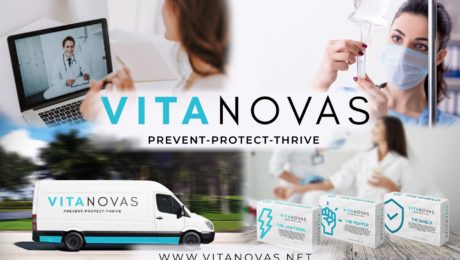
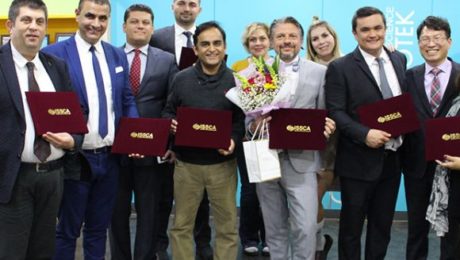
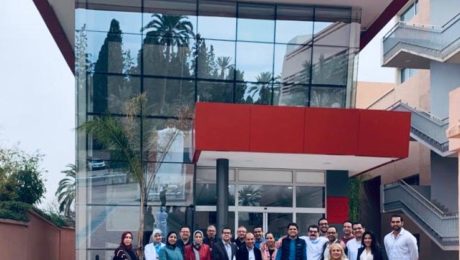
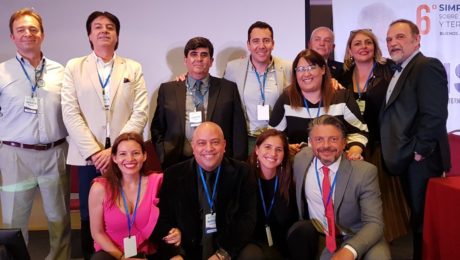
![churchill2[1]](https://stemcellcenter.net/wp-content/uploads/2019/11/churchill21-460x260_c.jpg)

![Stem-Cell[1]](https://stemcellcenter.net/wp-content/uploads/2019/11/Stem-Cell1-460x260_c.jpg)
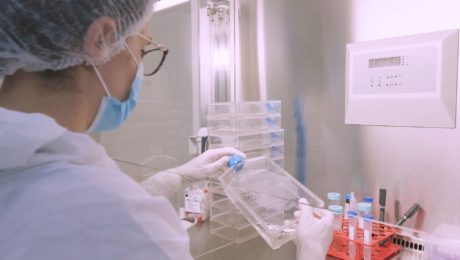
![Adrian-Learning-7[1]](https://stemcellcenter.net/wp-content/uploads/2019/11/Adrian-Learning-71-460x260_c.png)
![20160630_115913[1]](https://stemcellcenter.net/wp-content/uploads/2019/11/20160630_1159131-460x260_c.jpg)
![Adrian-Learning-5[1]](https://stemcellcenter.net/wp-content/uploads/2019/11/Adrian-Learning-51-460x260_c.png)